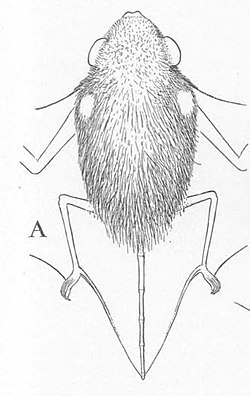| Allen's spotted bat | |
|---|---|
 | |
| Scientific classification | |
| Kingdom: | Animalia |
| Phylum: | Chordata |
| Class: | Mammalia |
| Order: | Chiroptera |
| Family: | Vespertilionidae |
| Genus: | Glauconycteris |
| Species: | G. humeralis |
| Binomial name | |
| Glauconycteris humeralis J.A. Allen, 1917 | |
Allen's spotted bat (Glauconycteris humeralis) is a species of vesper bat in the family Vespertilionidae found in the Central African Republic, the Democratic Republic of the Congo, Kenya, and Uganda. It is found in subtropical or tropical moist lowland forests. [1]
